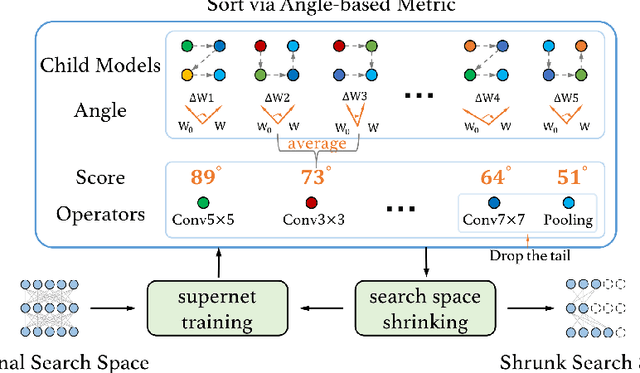Yuding Liang
Angle-based Search Space Shrinking for Neural Architecture Search
May 01, 2020



Abstract:In this work, we present a simple and general search space shrinking method, called Angle-Based search space Shrinking (ABS), for Neural Architecture Search (NAS). Our approach progressively simplifies the original search space by dropping unpromising candidates, thus can reduce difficulties for existing NAS methods to find superior architectures. In particular, we propose an angle-based metric to guide the shrinking process. We provide comprehensive evidences showing that, in weight-sharing supernet, the proposed metric is more stable and accurate than accuracy-based and magnitude-based metrics to predict the capability of child models. We also show that the angle-based metric can converge fast while training supernet, enabling us to get promising shrunk search spaces efficiently. ABS can easily apply to most of popular NAS approaches (e.g. SPOS, FariNAS, ProxylessNAS, DARTS and PDARTS). Comprehensive experiments show that ABS can dramatically enhance existing NAS approaches by providing a promising shrunk search space.
Automatic Generation of Text Descriptive Comments for Code Blocks
Aug 21, 2018



Abstract:We propose a framework to automatically generate descriptive comments for source code blocks. While this problem has been studied by many researchers previously, their methods are mostly based on fixed template and achieves poor results. Our framework does not rely on any template, but makes use of a new recursive neural network called Code-RNN to extract features from the source code and embed them into one vector. When this vector representation is input to a new recurrent neural network (Code-GRU), the overall framework generates text descriptions of the code with accuracy (Rouge-2 value) significantly higher than other learning-based approaches such as sequence-to-sequence model. The Code-RNN model can also be used in other scenario where the representation of code is required.
 Add to Chrome
Add to Chrome Add to Firefox
Add to Firefox Add to Edge
Add to Edge